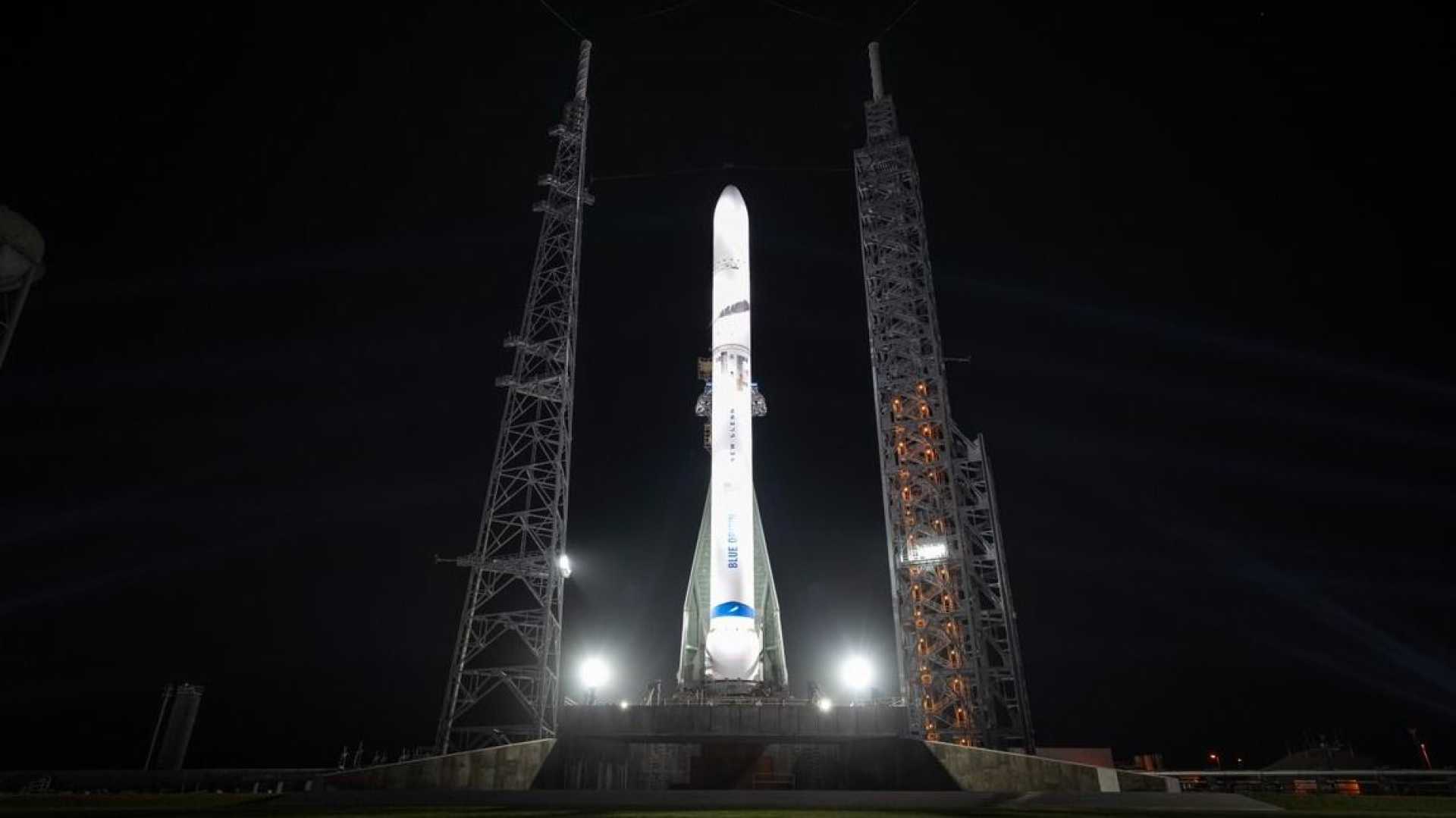Tech
Blue Origin’s New Glenn Rocket Set for Historic First Launch

Blue Origin’s New Glenn rocket, a towering 320-foot (98-meter) launch vehicle, is poised for its maiden flight from Cape Canaveral Space Force Station as early as Friday, January 10, 2025. The uncrewed mission, dubbed NG-1, marks a pivotal moment for Jeff Bezos’ aerospace company as it seeks to compete in the orbital launch market dominated by SpaceX and United Launch Alliance.
The New Glenn rocket, named after NASA astronaut John Glenn, is designed to carry payloads of up to 45 metric tons (99,200 pounds) to low Earth orbit. Its debut mission will test the rocket’s capabilities, including the recovery of its reusable first-stage booster, which aims to land on the Jacklyn, a seafaring platform named after Bezos’ mother. This recovery effort mirrors SpaceX’s successful booster landings, a key strategy for reducing launch costs.
For its inaugural flight, New Glenn will carry a test version of Blue Origin’s Blue Ring spacecraft platform. The demonstrator will validate communications, telemetry, and tracking systems during a six-hour mission. “This is our first flight, and we’ve prepared rigorously for it,” said Jarrett Jones, Senior Vice President of New Glenn at Blue Origin. “No matter what happens, we’ll learn, refine, and apply that knowledge to our next launch.”
New Glenn’s development has been years in the making, with Blue Origin initially targeting a 2020 launch. Delays are common in the aerospace industry, particularly for first-time orbital vehicles. The rocket’s large payload fairing, measuring nearly 23 feet (7 meters) in diameter, sets it apart from competitors like SpaceX’s Falcon 9 and Falcon Heavy, offering greater capacity for large payloads.
Blue Origin’s ambitions extend beyond this debut mission. The company has secured contracts with the U.S. Space Force and commercial partners, including plans to support Amazon’s Project Kuiper satellite constellation and the construction of the Orbital Reef space station. New Glenn’s success could position Blue Origin as a key player in national security launches and commercial space ventures.
SpaceX, Blue Origin’s primary competitor, has already established a strong foothold in the reusable rocket market. However, Blue Origin’s deliberate approach to development, symbolized by its tortoise logo, reflects a commitment to meticulous engineering. “We believe slow is smooth and smooth is fast,” Bezos said in 2016, emphasizing the company’s focus on reliability over speed.
As New Glenn prepares for liftoff, the aerospace industry watches closely. A successful launch and booster recovery would mark a significant milestone for Blue Origin, potentially reshaping the competitive landscape of space exploration.












